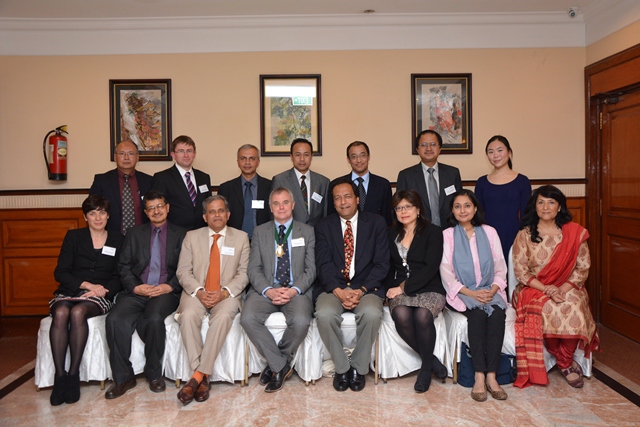
Blog Post from Professor Derek Bell
Sonya and I had the pleasure of travelling to Nepal recently to participate in a conference on Respiratory Failure and to host a Fellows’ Admission Ceremony attended by influential clinicians and the British Ambassador to Nepal. Talking about Respiratory Failure transported me back in time to my training as a junior doctor at the City Hospital in Edinburgh with Professor David Flenley and a number of other eminent Edinburgh respiratory physicians. At this time, I was one of many doctors in training who supported the initial respiratory failure trials which influenced the importance of the early recognition and aggressive treatment of respiratory failure to improve patient outcomes. The talks on respiratory failure in Nepal were fascinating and delivered by a combination of UK and local speakers and emphasised the importance of optimal management and ongoing attention to detail for all patients with respiratory failure to reduce morbidity and mortality.
Apart from the experience of participating in the conference, the views on taking off and landing from Kathmandu airport were breath taking and will live with us for many years. Everyone we met was helpful and kind and we were privileged to visit many of the religious and historic aspects of Kathmandu which is home to seven UNESCO sites.
The nature of healthcare in Nepal is largely based on the UK model and it is important that we continue to develop partnerships with clinicians in Nepal and elsewhere as we collaborate and support the ongoing development of healthcare internationally. We visited two hospitals, Bir and Tribhuvan, which provided unique insights for a UK team and we were struck by the care and compassion for patients. Nepal faces financial and geographic challenges and although we did not travel into any rural areas, access to healthcare for the population was a recurring theme in most conversations. Access to and provision of pulmonary rehabilitation, diabetes care and maternal health were all discussed. It is clear that there are a number of possible ways for College Fellows and Members to support Nepal. These could include offering short sabbaticals for consultants from Nepal to visit the UK particularly to develop or maintain clinical technical skills, but equally, opportunities exist for consultants to undertake sabbatical work in Nepal where the exposure to clinical medicine, particularly in relation to chronic disease and infectious diseases, will provide new insights.
All in all we had a very busy five days in Nepal but the time was extremely enjoyable both in terms of learning and the level of enthusiasm by all medical and other staff, including nursing and physiotherapy, was remarkable. We look forward to visiting again at some stage in the future.
View a selection of images from the visit on our Facebook page
